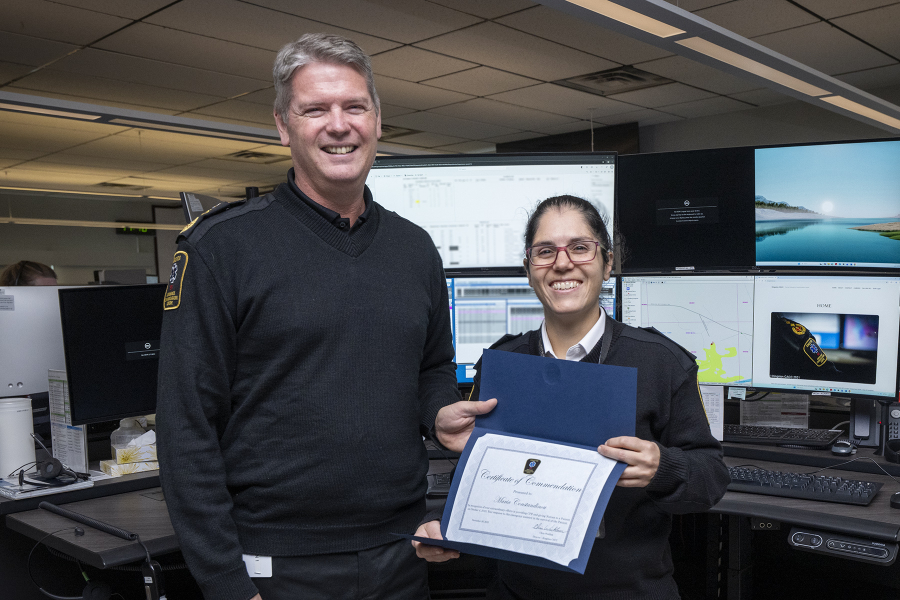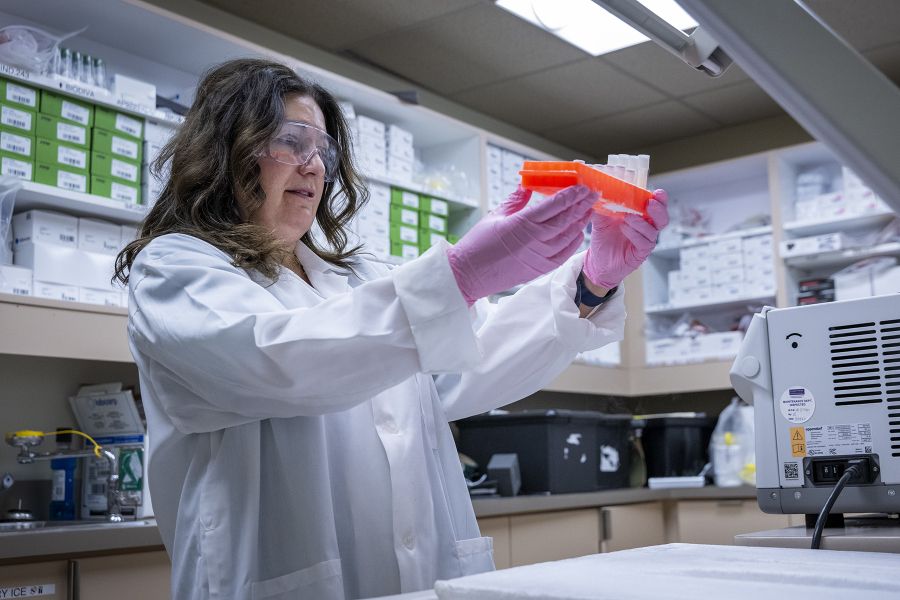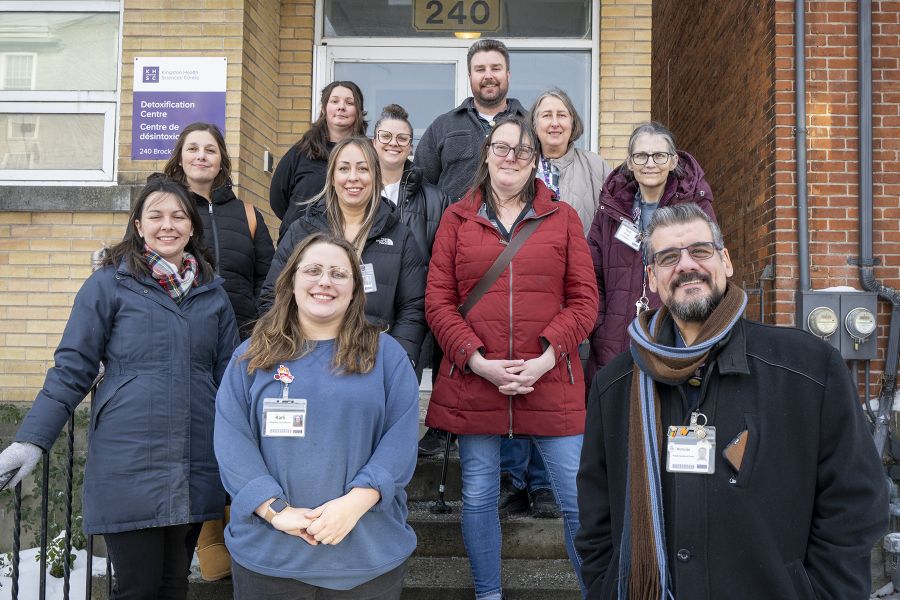Effective immediately masking is required for everyone when present on all inpatient units, in the Emergency Department (ED), the Urgent Care Centre (UCC), and the Children’s Outpatient Centre (COPC).
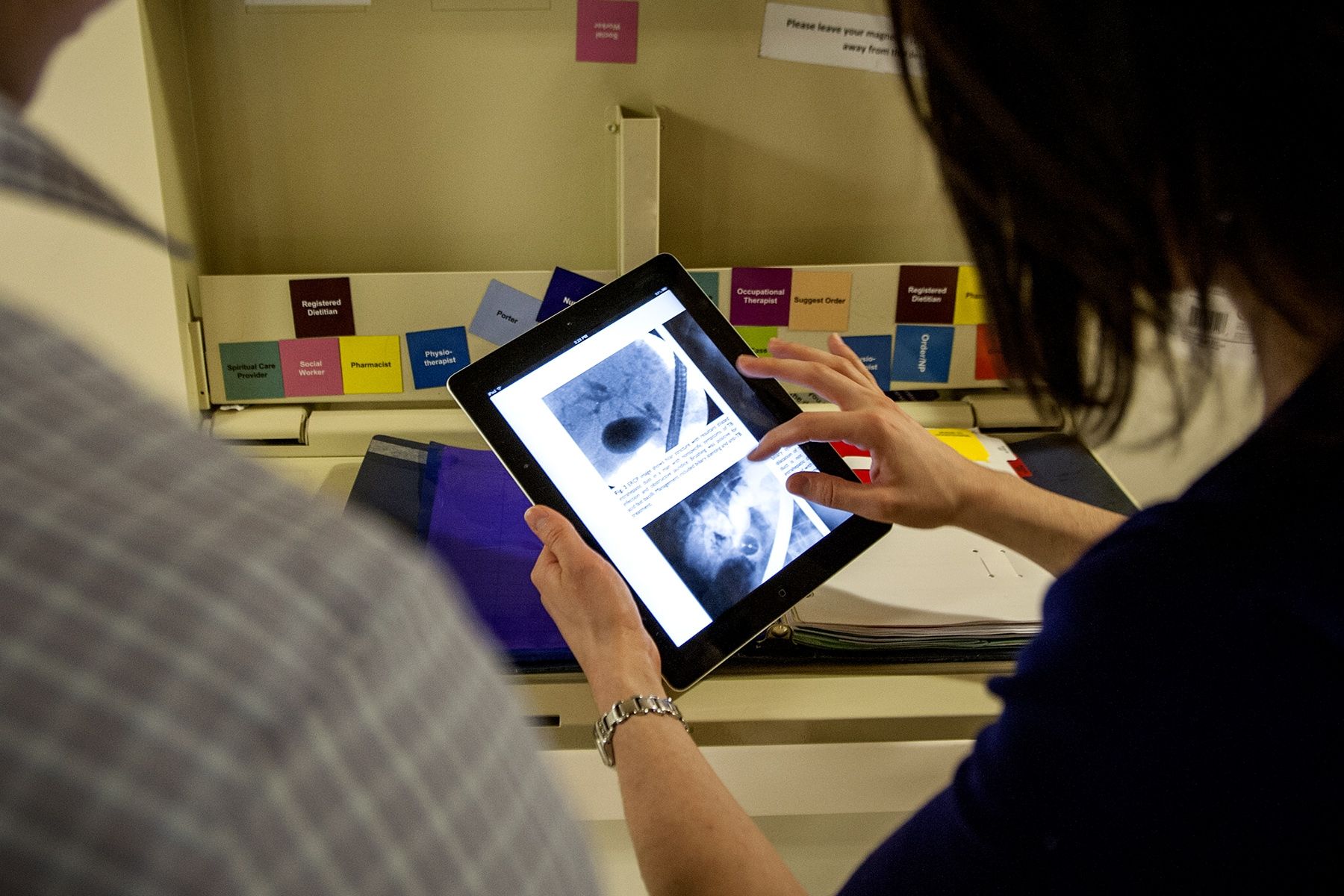
It's technology that many of us only dreamed of just a few years ago, but now tablets are quickly becoming a new tool that will benefit our front-line clinicians and our patients. As part of a pilot project funded by the Queen's School of Medicine, several residents at our hospital have been handed iPads in support of education, communication, and patient care.
"Bringing tablets to the table will enhance our patient care, but it will also excite our multi-professional teams as they experiment with new opportunities for quality improvement and research," says Dr. Stephen Archer, Program Medical Director at Kingston General Hospital, and Head of Queen's Department of Medicine. "We're excited to share our findings with other departments as we move forward."
The pilot project began last month when iPads were assigned to six residents in Internal Medicine. They're carrying them everywhere and are now always connected to online medical resources.
"We aren't lugging around large books, medical journals or studies because now it's all consolidated into one place. The tablets are a great medical reference tool," says Dr. Catherine Barry, one of the residents taking part. "I can pull up the medical knowledge I need, but I'm also able to share medical diagrams with patients, which makes this a fantastic educational resource."
The residents are filling in surveys regularly to help keep track of how they're using the tablets and to gather ideas on how they can be used in the future.
"Taking the technology beyond a reference tool is where it gets really exciting," says Dr. Siddhartha Srivastava, another resident assigned an iPad. "Eventually we'd like to have the option of monitoring and speaking with patients remotely using video chats and other forms of messaging."
Because it takes time to incorporate new technology into a hospital, many of these upcoming innovations will have to be rolled out over time.
"Integrating our IT systems with these mobile devices is a big part of the process. Right now we're testing our Patient Care System (PCS) with the iPads so that tablet use can be seamless for our staff," says Dino Loricchio, Manager of the Project Management Office. "Supporting outstanding care and patient engagement means giving our teams the best tools available, and there's no doubt that tablets are a part of the future of healthcare.
Gallery
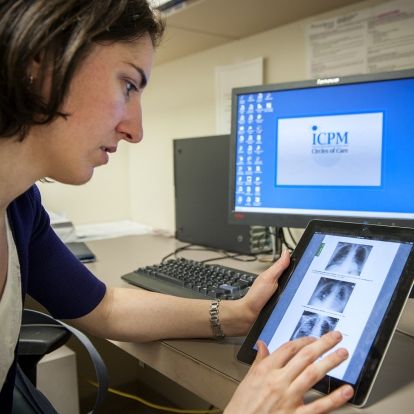
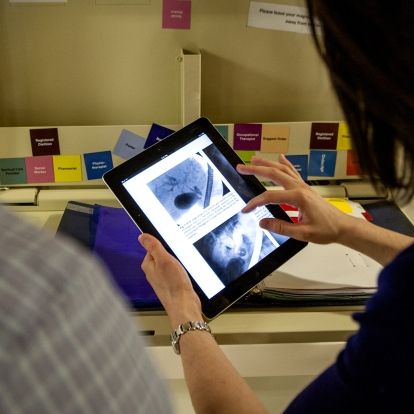
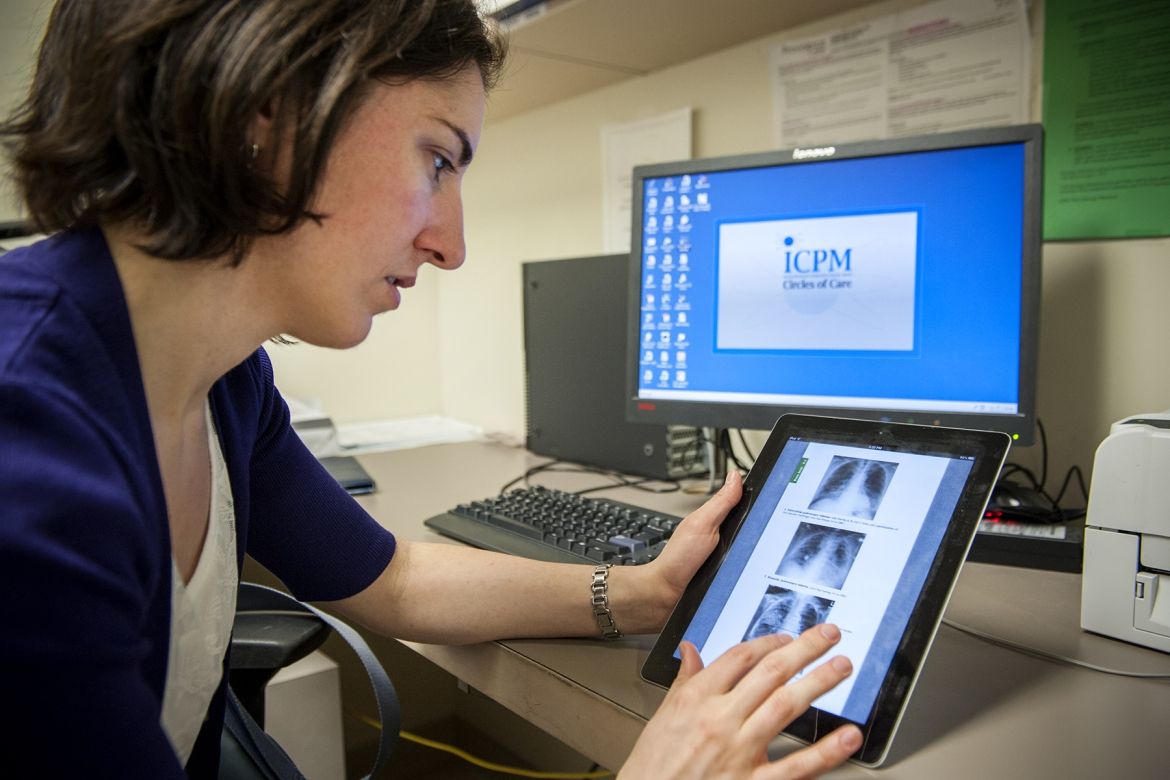
Dr. Catherine Barry is one of six residents trying an iPad to see how they perform on the units at KGH.
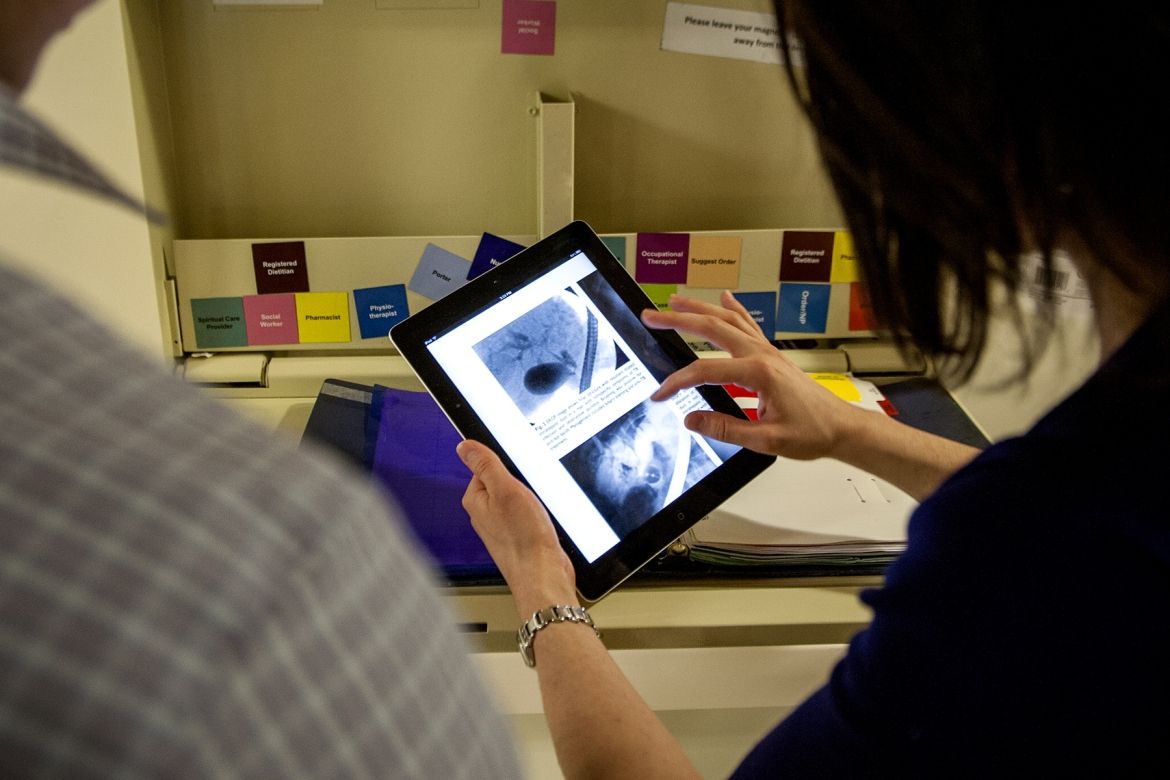
Dr. Catherine Barry uses her new iPad to review imaging files for patients on one of the units at KGH.

